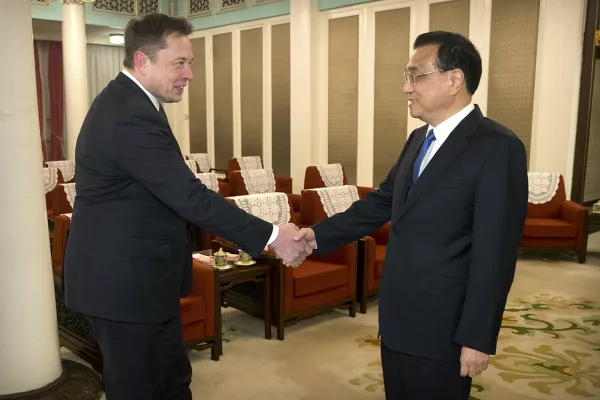On 27 October 2023, former Premier of China and second-in-command of the Chinese Communist Party (CCP), Li Kequiang, died of a heart attack in Shanghai at the age of 68. Having only recently left his position as Premier, or head of government, in March, he was still a widely recognized and influential member of Chinese political and social culture. Li’s death prompted an outpouring of posts on social media, from all sides of society. Business leaders shared posts admiring Li and his passion for industrial innovation and entrepreneurship, Many in the healthcare industry valued his steadfast support during COVID lockdowns, and the poor cherished his commitment to closing the wealth gap and ending poverty in China. However, posts about Li’s death were quickly limited by China’s censorship machine, which allowed only the most basic of tributes to be shared. While censorship of a supposedly beloved communist hero may seem strange, some attribute it to the party’s fear of uprisings coming out of grief from his death and resentment that his visions were never realized. Similar uprisings have happened before, after the 1989 death of former CCP General Secretary and Chairman Hu Yaobang. These small protests eventually evolved into the Tiananmen Square Protests, something the CCP wants to prevent from recurring.
Beyond Li’s decades of service to the State, he served as a symbol of economic liberalism and openness to many Chinese. Along with tributes to his death came tributes to Li’s idea of what China could have been. Li was a strong supporter of Foreign Direct Investment (FDI) in China and wanted to make it easier for foreign companies to do business in the country. His economic ideas, called “Likonomics” by some, promoted open market policies and greater welfare for those less well-off. However, Li never got to realize his economic vision for China and found his ideas brushed aside by the current CCP General Secretary and Chinese President Xi Jinping, whose leadership follows a more authoritarianism. Government control is especially important in the economy. Some speculate that it is this policy disagreement between the two that led Li to depart his post as Premier earlier this year. Li’s economic ideals made him very popular among the business community in China, some of whom saw him as a new Deng Xiaoping, who had implemented many economic reforms during his time in power, primarily during the 1980s.

In addition to economics, many in China saw him as the champion of the common man, and as a government figure who they trusted and felt understood by. Li’s efforts to help migrant workers, the unemployed, and those living paycheck-to-paycheck among others made him a hero of the poor in China. In their tributes to him, some mentioned his use of easily understandable language and clear messages rather than the complicated technical jargon used by others in the current government. His clear communication was a key aspect as to why many felt that their worries were understood and their interests protected.
With China now facing economic issues such as high youth unemployment and slowing growth, many long for the days of economic openness and free-market policies under Deng Xiaoping. With his strong English skills, interest in Western economics, and desire for economic liberalism, many thought Li could be the one to return China to that period of economic prosperity. Regretfully for many Chinese, this future seems unlikely as Li and other like-minded politicians from his faction of the CCP have been increasingly sidelined. Recently, Hu Jintao, considered by many to be Li’s mentor, was forced to leave the CCP Congress in the midst of proceedings, an action seen by many as Xi Jinping forcing those he has ideological differences with out of power. Many speculated that despite the official narrative of Hu feeling unwell, he was really removed as a show of power by Xi Jinping and his faction of the CCP, whose ideology goes strongly against Hu’s beliefs of economic openness and increased freedom of speech and expression.
While Li has been called “the weakest Premier,” since the CCP took power in 1949, he still managed to have a large impact on the lives of many Chinese, and his death has prompted a mourning period across the entire nation. As many grieve over his death, they grieve what they see as the death of a more economically liberal and prosperous China as well.







